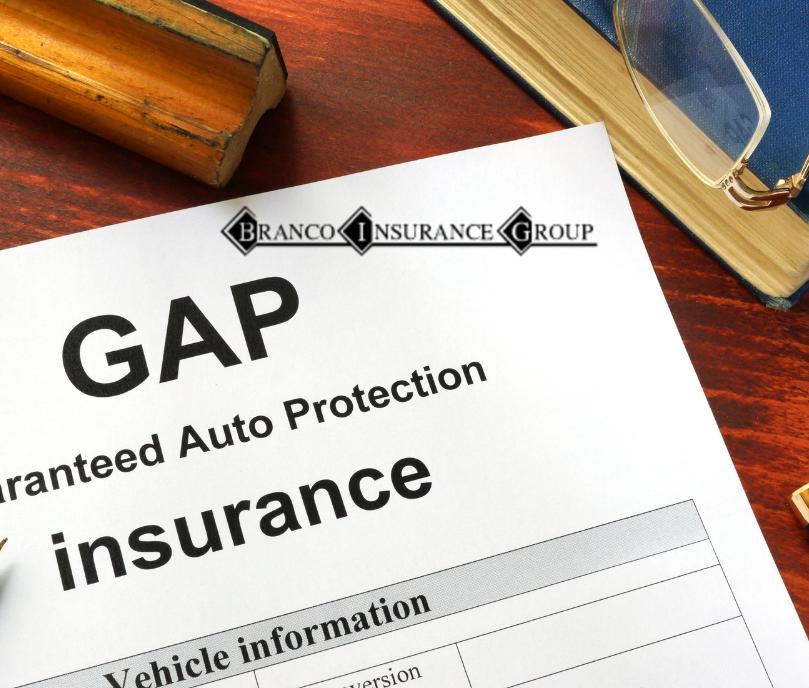
Mental Health Awareness Month: Prioritize the Mind, Support the Heart
May is Mental Health Awareness Month, a time to reflect on the importance of emotional well-being and the invisible battles many face daily. At Branco

GAP insurance is an often misunderstood product that can be extremely valuable for certain car owners. In short, GAP insurance pays the difference between what you owe on your car loan and what your car is worth if it’s totaled in an accident or stolen. Here’s a more detailed look at how GAP insurance works and who needs it.
GAP insurance, which stands for Guaranteed Asset Protection, is an optional type of car insurance that covers the difference between the amount you owe on your car loan and the actual cash value of your vehicle in the event that it’s totaled or stolen. In other words, if you have an accident or your car is stolen, and the insurance company determines that it’s a total loss, GAP insurance will pay the difference between what you still owe on your loan and the value of your car.
If you have a car loan, there’s a good chance that you’re “upside down” on your loan, which means you owe more than the car is currently worth. This is because new cars depreciate rapidly as soon as you drive them off the lot. In fact, most cars lose 20% of their value in the first year alone.
That rapid depreciation can leave you owing more on your car loan than the car is actually worth, which creates a “gap” between the two numbers. If your vehicle is totaled in an accident or stolen and you only have standard auto insurance, your insurer will only pay out what the car is currently worth—which may be less than what you still owe on your loan.
That’s where GAP insurance comes in.
GAP insurance pays the difference between what your car is worth and what you owe on the loan, up to a maximum specified amount. So, if you have a $20,000 outstanding loan balance and your car is only worth $15,000 at the time of the accident, GAP insurance would cover the other $5,000.
Whether or not you need GAP insurance depends mainly on how much money you have for a down payment and how long of a loan term you choose. If you put a significant amount of money down upfront or choose a shorter loan term—both of which lower your monthly payments—the chances are good that you won’t be upside down on your loan for very long. Conversely, if you have a small down payment or choose a longer loan term, there’s a good chance you’ll be upside down on your loan for some time.
Additionally, some lenders require borrowers to purchase GAP insurance if they’re already upside down on their loans when they apply for financing. And finally, if you’re leasing a vehicle rather than buying it outright, GAP insurance is usually required by the leasing company.
When purchased from a dealership, GAP insurance can cost between $400 and $700, while it costs $20 to $40 per year to add it to a car insurance policy.
GAP insurance can be extremely valuable for certain drivers, but whether or not it makes sense for you depends largely on factors like how much money you put down upfront and how long of a loan term you choose. Most policies cost between $20 and $700 per year but check with your insurer to get an accurate quote for your situation.
Are you wondering what GAP insurance is and whether or not you need it? You’re not alone. GAP insurance is one of those things that many people don’t understand, but it can be a lifesaver if you find yourself in the right (or wrong) circumstances. Here’s everything you need to know about GAP insurance.
Whether or not you need GAP insurance is really a personal decision. If you feel like you would struggle to come up with the money to pay off your car loan if your car was totaled, then GAP insurance might be a good idea for you. On the other hand, if you’re comfortable with taking on that financial responsibility, then you may not need it.
GAP insurance is a type of optional car insurance that covers the difference between what you owe on your car loan and the actual cash value of your vehicle in the event that it’s totaled or stolen. Whether or not you need it is really a personal decision, but if you feel like it would be helpful for you, it typically costs about a few dollars a month if you buy it from an insurance agency and a few hundred dollars a month if you get it through your auto dealer.
If you have a loan or lease on your car and it’s totaled, your insurer will only pay you the actual cash value of the car, which may be less than what you still owe on the loan. That’s where GAP insurance comes in—it pays the “gap” between what you owe and what your insurer will pay.
Whether or not you should get GAP insurance is a personal decision, but there are a few factors to consider that may help you make up your mind:
Ultimately, whether or not to get GAP insurance is a personal decision. However, there are a few factors to consider that may help you make up your mind, such as whether or not your lender requires it and whether or not your car has a high resale value. If you’re still not sure, many companies offer free quotes so that you can compare rates and coverage options before making a final decision.
GAP insurance is a type of insurance that covers the difference between what you owe on your car loan and what your car is worth in the event of a total loss. It’s optional insurance coverage, but it can provide peace of mind if you have a loan on your car. Here’s what you need to know about GAP insurance and when it doesn’t pay.
GAP Insurance can be very beneficial if included as part of an auto-insurance policyholder agreement contract form however, certain conditions must be met for said Gap Insurance clause within said contract agreement to payout accordingly.
There are a few things to consider when deciding if GAP insurance is right for you. Here are some pros and cons to help you make your decision:
Ultimately, whether or not GAP insurance makes sense for you depends on a variety of factors. If you’re still on the fence about whether or not to add this coverage to your policy, talk to your auto insurance agent about whether they recommend it based on your situation. They can help provide more insight into whether GAP insurance would be beneficial for you.
If your auto lender requires that you have GAP insurance and you don’t already have it, they will likely sell it to you when you finance your vehicle. However, you don’t have to buy it from them if you don’t want to. In fact, it’s often cheaper to buy it elsewhere–especially if you shop around and compare rates before buying. You can purchase GAP insurance from most auto insurers as well as some stand-alone companies that specialize in selling GAP insurance.
GAP insurance is an important protection to have if you’re financing a new or used vehicle, but it’s not required in all states, and not all lenders require it either.
Suppose you do need gap insurance or simply want it for peace of mind. In that case, there are a few things to keep in mind, like what it covers (physical damage only), how long it lasts (generally 12 or 24 months), and that you don’t have to buy it from your lender if they offer it to you when financing your vehicle (it’s often cheaper to buy elsewhere).
Most auto insurers and some stand-alone companies sell GAP insurance, so shop around and compare rates before buying to get the best deal.
GAP insurance can be a worthwhile investment if you are financing a brand-new or nearly-new car or have made a small down payment on your loan. It provides peace of mind in knowing that you will be covered if your car is totaled or stolen and can save you from having to come up with thousands of dollars out of pocket to pay off your loan.
If you have an older car or you are not worried about owing money on your loan if your car is totaled, then GAP insurance may not be worth the cost. You can also drop GAP insurance at any time and use the money you save to pay down your loan balance faster.
Do your research and talk to your lender or insurance agent to see if GAP insurance is right for you.
GAP insurance is a type of car insurance that covers the “gap” between the amount your primary car insurance company pays for damages and what you owe on your loan or lease. In other words, gap insurance can help protect you financially if your vehicle is totaled in an accident and you still owe money on it. The cost of GAP Insurance depends on a variety of factors, including the make and model of your car, where you live, and how comprehensive and collision coverage are already included in your policy.
If you’re financing a new car purchase—or even leasing one—you should consider purchasing GAP insurance to protect yourself financially in case something happens to your vehicle. It’s important to note that not all lenders require you to have gap insurance as part of your auto policy, so be sure to ask before assuming that you’re automatically covered. And if you have GAP insurance coverage through another source, remember that it likely won’t cover everything (e.g., mechanical failure). So weigh out the pros and cons before deciding on whether or not to buy GAP insurance.
If you have any additional questions about GAP insurance or any other auto insurance questions, be sure to talk to our experts at Branco Insurance Group. We’ll be happy to help you make the best decision for your needs. Contact us today to learn more.

May is Mental Health Awareness Month, a time to reflect on the importance of emotional well-being and the invisible battles many face daily. At Branco

Two of Naugatuck’s long-standing insurance professionals have joined forces. Beginning on April 14th, the Healy-Lynn Insurance Agency has become a division of Branco Insurance Group.
